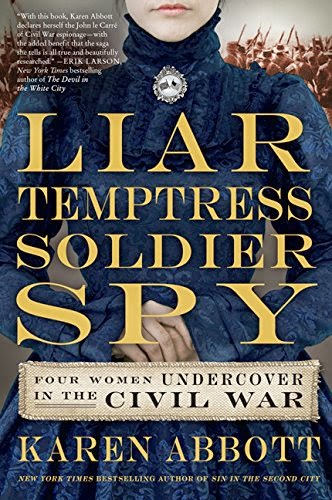So now we have "Sizzle History," a term apparently coined by USA Today. Karen Abbott is in search of the salacious side of American history, offering up such juicy morsels as Gypsy Rose Lee, the brothels of Chicago, and now transgender soldiers and undercover women spies during the Civil War. Granted, these are all interesting subjects, but it seems Abbott is relying more on where your imagination takes you than what history uncovers in these tales of the seamy side of American history.
I've had my fill of journalists turned armchair historians. It is rare that one of the books offers anything new in the way of history or interpretation. What they seek out is the sensational and package it in a way to attract readers, more often using secondary sources. We have Bill O'Reilly (although it is hard to think of him as a journalist, much less historian) pitching his latest "murder mystery" in Killing Patton, which should be filed under fantasy but instead occupies four places in Amazon's current Top Ten History List, in two audio book forms, kindle and hardback. It doesn't matter that Papa Bear's books have been universally panned by historians, they sell.
Among other best sellers that pop up on my amazon front page are Tinseltown, described as "an addictive true tale of ambition, scandal, intrigue, murder and creation of the modern film industry," and The Lost Tribe of Coney Island, "the incredible true story of the Igorrotes, a group of 'headhunting, dog-eating' tribespeople brought to America from the Philippines by the opportunistic showman Truman K. Hunt." You can easily see such tales made into lurid movies.
Reviews are genaerally mixed. Jonathon Yardly was attacked for writing a "sexist" review of Abbott's Liar Temptress Soldier Spy for noting that "at its less-than-best it seems (dare I say it?) to have been borrowed from the pages of a woman's magazine," calling the many uncredited passages "poetic license." Karen was none too happy about the review.
One assumes the publishers come up with these catchy titles to promote sales. Abbott's title is a direct take on a John Le Carre novel. It does seem as though the murder mystery has become the new way of exploring history, since many readers are most likely unaware of the subject matter presented in these nonfiction books beforehand. However, being an investigative journalist or political pundit (especially in this day and age) doesn't automatically make you a historian.

Comments
Post a Comment